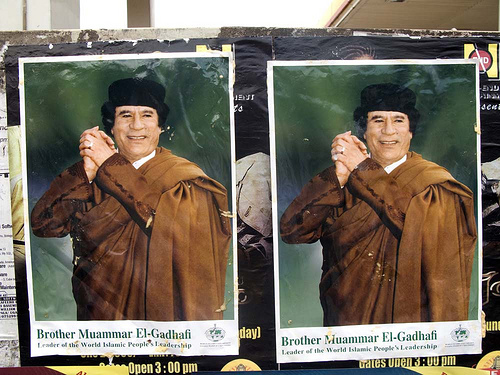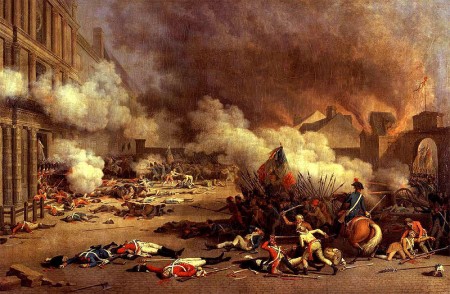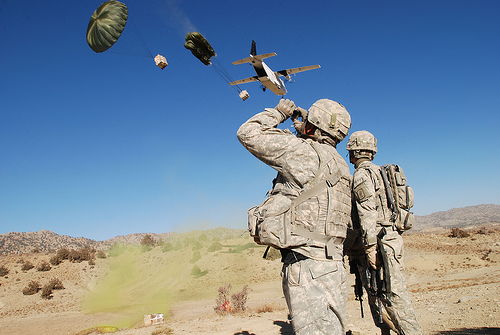
Sometimes there are articles that simply get under my skin and that create a pesky need to address them individually. John Deverell’s op-ed in The Guardian, There’s no shame in talking to people like Gaddafi, was one of those pieces.
Deverell is a British military figure who notes, with obvious pride, that he was involved in negotiations between the UK and Gaddafi. He is frustrated with a trend of criticizing the British government and institutions over their relationship with Gaddafi:
|
“it has become politically expedient to decry the relationship fostered since 2003 between the last British government and Gaddafi’s regime. Former prime minister Tony Blair, officers from the British secret intelligence service, the London School of Economics ( in the news again last week): all have been criticised for the personal relationships they built with senior Libyans, to the extent of being accused of turning a blind eye to human rights and other abuses.” |




